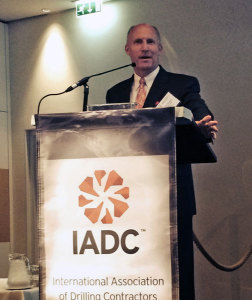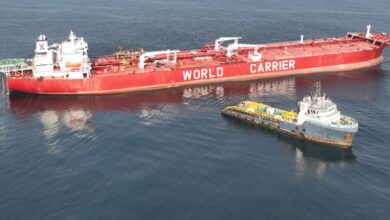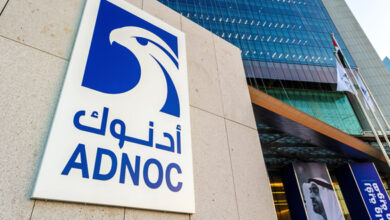Transocean’s Newman: Collaboration will take industry from good to great
By Linda Hsieh, Managing Editor

Amid a backdrop of softening rig demand as a significant number of new rigs enter the market, the drilling industry must take steps today to prepare for tomorrow’s inevitable growth. Giving the keynote address at the 2014 IADC Drilling HSE Europe Conference in Amsterdam on 24 September, Transocean President and CEO Steven Newman urged the industry to embrace collaboration in order to go from good to great. “Good is an obligation mindset, where we do things because we have to,” he said. “Great is an empowerment culture where we do things because they’re the good things to do.”
From a regulatory perspective, this means not thinking in terms of requirements and obligations. “We understand the need for regulation, but sometimes regulations around the world pull us in different directions,” Mr Newman said, noting that different jurisdictions can have regulations that conflict with one another. “As an example, if we need a regulation in Canada, and we conclude it is the right thing to do, why wouldn’t we do that everywhere, regardless of what the regulatory regime requires?”
Good is failure oriented, he continued, while great is success oriented. “When you hear the term ‘lessons learned’ in a conversation, my guess is you immediately conclude that something went wrong, and there’s an opportunity for improvement… Great is investigating what goes right and what we do well, not just the evaluation of failures. Understanding the root causes of what goes well creates a foundation for building an effective future workforce,” he said.
The industry also should re-evaluate the way it approaches training. “Good is training the way we have always trained because it’s worked well for us in the past. Great is about adapting knowledge transfer to the way today’s generation absorbs information,” Mr Newman said. He referenced the continuing evolution of text messaging and the use of emoticons to convey emotions, as well as the widespread use of social media such as Twitter and Facebook. These all point to the fact that today’s generation communicates very differently, which must be recognized in industry’s training programs, he urged.
“I’m not suggesting that we can communicate well control in 140 characters or less, but we’ve got to figure out how to adapt our historical knowledge transfer to the way today’s generation learns,” Mr Newman said. “We’ve got to be able to reach out to large, multicultural populations quickly and concentrate information in shorter sessions.”
Good also means taking too much credit for and comfort from the industry’s historical progress in personal safety. “Great would be recognizing that process safety must be ingrained in our industry to the depth and detail of personal safety without losing focus on the latter,” he said. The industry must embrace process safety and management of major hazards and human factors the same way it has embraced personal safety, Mr Newman emphasized.
“People have to understand their roles and responsibilities, why they have them and why they need to fulfill them. Good is conducting an investigation and concluding that the procedures were inadequate or they weren’t followed… Great is acknowledging that human factors is an evolving science and can contribute significantly to our ability to improve. It is no longer acceptable to conclude that the procedures were inadequate or were not followed, that supervision was lacking or that management of change wasn’t applied. An understanding of why people behave the way they do, not only following failure but following success as well, is essential to having a robust empowerment culture.”
The drilling industry has a tendency to tackle issues in isolation, but when it comes to safety, collaboration will be the key to unlocking greatness. Mr Newman concluded: “We simply can’t be successful standing alone as single entities in our industry.”




